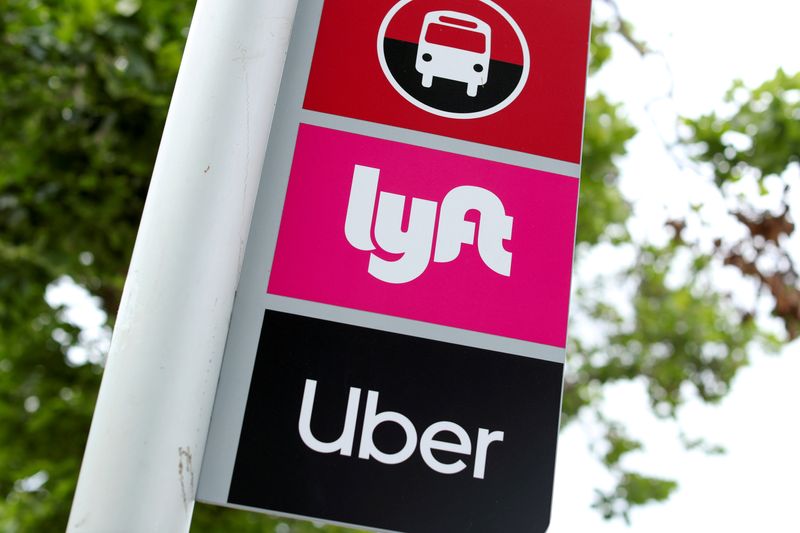By Tina Bellon and Munsif Vengattil
(Reuters) - Gig economy companies want to turn California voters' decision to make ride-service drivers contractors into a model for the nation, as several states consider requiring drivers from Uber, Lyft and rival services be treated as employees with higher compensation.
Voters in California on Tuesday approved a ballot proposal by Uber Technologies (NYSE:UBER) Inc, Lyft Inc (NASDAQ:LYFT) and its allies that cements app-based food delivery and ride-hailing drivers' status as independent contractors, rather than employees.
Uber's shares rose 12%, while Lyft jumped 9%. The companies, along with DoorDash, Instacart and Postmates, poured more than $205 million into the campaign.
According to California figures, 58% supported the measure. The results are incomplete and must still be certified.
The ballot measure, known as Proposition 22, carves an exception for ride and delivery companies in a controversial state labor law and offers gig workers some healthcare, minimum pay and other benefits. The state had said gig workers would have to be treated as employees under the law.
"Now, we're looking ahead and across the country, ready to champion new benefits structures that are portable, proportional, and flexible," DoorDash Chief Executive Officer Tony Xu said in a statement.
Uber, which is scheduled to report third-quarter results after the bell on Thursday, in an email to California customers on Wednesday said the vote paved the way for a more secure future for app-based workers.
"We'll continue to advocate for drivers everywhere, because we agree that they deserve better," the email said.
Uber, Lyft and others have long advocated for what they consider a "third way" in employment law by fusing contractor status with limited benefits. Labor groups have dismissed the proposal as creating a new underclass of workers with fewer rights and protections.
Trend-setting California passed the first state law requiring companies that control how workers do their jobs to classify those workers as employees, and others have followed.
Democratic states including New York, New Jersey, Connecticut, Washington, Oregon and Illinois have introduced similar laws or launched audits against gig companies and Massachusetts in July sued Uber and Lyft over allegedly misclassifying their drivers.
Massachusetts' attorney general said the state's case against Uber and Lyft would continue.
The question of whether gig workers should be treated as employees has also become a national issue in U.S. politics and the presidential campaign, dividing Democrats and Republicans.
Democratic presidential candidate Joe Biden has voiced strong support for California's labor law, while the U.S. Labor Department under President Donald Trump has published a rule that would make it easier to classify workers as independent contractors.
Lyft's Chief Policy Officer Anthony Foxx in a statement on Wednesday said Lyft stood ready to work with all interested parties, including drivers, labor unions and policymakers, to build a stronger safety net for gig workers.
Stephen Ju, a Credit Suisse (SIX:CSGN) analyst, in a note on Wednesday said Proposition 22's success may stunt other regional efforts to change classification.
Reclassifying drivers in California could have amounted to more than $392 million each for Uber and Lyft in annual employee-related costs, a Reuters calculation showed.

The companies warned they could cut 80% of drivers, double prices and even leave California, their home market, if they lost.